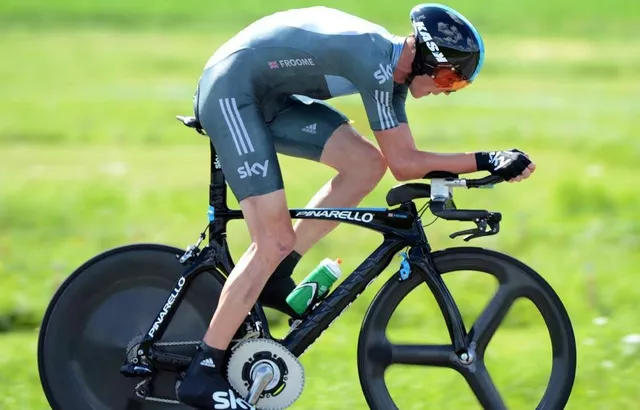
In recent decades, African runners have dominated the world of competitive running. From the Olympic Games to marathons, African athletes consistently take home the gold. But why is it that African runners dominate foot races, yet bike races remain unaffected by the same phenomenon? To answer this question, we must first explore the physiological advantages African runners have in running events.
One of the primary reasons African runners have such success in running events is due to their body structure and size. African runners tend to have long, lean bodies that are well suited for running. Their long legs, narrow hips, and slender arms are all conducive to sprinting, as they’re able to achieve a greater range of motion in comparison to athletes with a different body type. Additionally, African runners tend to be significantly lighter than other competitors, allowing them to move faster and more efficiently.
Another advantage African runners have is their ability to store and use oxygen more efficiently. Research has found that African runners have higher oxygen-carrying capacity in their blood, enabling them to take in more oxygen with each breath. This allows them to run for longer periods of time without becoming fatigued, giving them an edge over their competitors in long-distance foot races.
Lastly, African runners have a natural advantage when it comes to their running stride. Studies have found that African runners tend to have a more efficient running stride than other athletes, allowing them to cover more ground per stride and ultimately run faster. This is due to the fact that African runners have a relatively low center of gravity, enabling them to stay closer to the ground as they run.
These physiological advantages are why African runners are so successful in foot races, while bike races remain unaffected by the same phenomenon. While bike racing requires a different set of skills, African runners have the natural ability to excel in foot races, and the results speak for themselves.
African runners have consistently dominated the world of foot races for many years, with a number of African athletes winning Olympic and world championship events. This pattern has been particularly evident in long-distance running events, where the success of African runners has been unprecedented. So why is it that African athletes seem to have such an advantage when it comes to foot races?
The answer may lie in a combination of physical and cultural factors. African runners are typically blessed with a combination of natural athleticism and a strong physical build, which gives them an edge over their competitors. They also tend to have a strong work ethic and excellent running technique, which allows them to conserve energy and maintain a steady pace throughout a race. This combination of physical and technical advantages gives African runners a clear advantage in foot races.
Culturally, running has a long history in many African countries. In Kenya, for example, running has been a major part of life for generations, and athletes are highly respected and admired in the community. This respect and admiration also drives African athletes to excel in running and they often have access to better training and support than athletes from other parts of the world. This cultural support and commitment to running helps to ensure that African runners are well-prepared for any foot race.
In contrast, cycling is a relatively new sport in many parts of Africa. As a result, African cyclists do not enjoy the same level of cultural acceptance or support as African runners, and are often at a disadvantage in bike races compared to athletes from other parts of the world. This lack of cultural acceptance and support can make it difficult for African cyclists to compete at the highest levels of the sport.
In conclusion, the success of African runners in foot races is largely due to a combination of physical and cultural factors. African athletes are blessed with a combination of natural athleticism and a strong physical build, and their strong work ethic and running technique allow them to conserve energy and maintain a steady pace throughout a race. Additionally, running is a highly respected and admired activity in many African countries, and as a result African athletes often have access to better training and support than athletes from other parts of the world. In contrast, cycling is a relatively new sport in many parts of Africa, and as a result African cyclists do not enjoy the same level of cultural acceptance or support, making it difficult for them to compete at the highest levels of the sport.
It is no secret that African runners have a history of success in foot races. From Usain Bolt to Eliud Kipchoge, these athletes have consistently demonstrated their extraordinary speed, agility, and endurance. But why is it that African runners tend to win foot races while cyclists of other nationalities often take the top spots in bike races? To answer this question, it’s important to look at the differences between African and non-African runners.
One of the most important differences is the way that African runners train. African runners have a tendency to train in more extreme conditions than non-African runners. This includes running in high altitudes, running long distances, and running in hot and humid weather. This type of training gives African runners an edge in terms of endurance and stamina when it comes to foot races.
Another important difference between African and non-African runners is their diet. African runners often consume higher amounts of carbohydrates and other high-energy foods than their non-African counterparts. This helps to provide them with the energy they need to complete long races. Additionally, the foods consumed by African runners are often high in vitamins and minerals, which can help to improve their overall health and performance.
Finally, African runners have been known to have superior mental toughness when compared to non-African runners. This mental strength gives them the ability to push themselves further and stay focused on their goal. This mental fortitude is often credited with helping African runners stay ahead of the competition.
When looking at the differences between African and non-African runners, it’s clear to see why African runners have had such a strong history of success in foot races. Their training, diet, and mental toughness give them an advantage over their non-African counterparts. As such, it is no surprise that African runners continue to dominate in foot races.
When it comes to running, African athletes have a clear advantage. In the world of long-distance running, African runners have dominated for decades, winning the majority of foot races and setting countless world records. But why are African runners so successful?
One of the primary factors that contribute to the success of African runners is their environment and training. African runners often come from rural, mountainous regions, where running is a natural part of everyday life. Running is part of the culture, and for many African runners, it is a way of life. African runners are also accustomed to running in hot, humid climates, and their bodies are adapted to the conditions, allowing them to run more efficiently.
In addition, African runners typically train harder and longer than their competitors. They have access to more advanced training techniques, coaches, and facilities than many other runners. This allows them to push their bodies to the limit, resulting in improved performance. African runners have also developed mental toughness, which helps them stay focused and motivated during races.
All of these factors combined have enabled African runners to become some of the best in the world. African runners have dominated the Olympic Games, winning the majority of medals in the long-distance running events. While African runners may not have the same success in bike races, their success in foot races is undeniable.
The question of why African runners consistently dominate long-distance running events has been a topic of debate for years. The same cannot be said for bike races, however. While African cyclists have made a few appearances in the Tour de France and other major cycling events, they are mostly absent from the winner’s podium. So, what makes African runners so much better than cyclists?
The first and most obvious difference is the physiological makeup of African runners versus cyclists. African runners tend to be naturally lean and muscular, with long, powerful legs. This builds up a lot of power in their strides, allowing them to move quickly and efficiently over long distances. On the other hand, cyclists typically have shorter legs and a more compact body type, which is better suited for cycling in a seated position. This makes them more efficient riders, but they lack the leg power that African runners possess.
The second difference is the cultural backgrounds of African runners and cyclists. African runners come from countries where running is a way of life. It is used for transportation and communication, and is often seen as a means of survival. As a result, running is deeply ingrained in their culture and is taken very seriously. On the other hand, cycling is mostly seen as a hobby or recreational activity in most African countries. It is not seen as a serious sport, so many African cyclists lack the motivation and dedication needed to compete at a professional level.
The combination of physiological and cultural differences between African runners and cyclists is what makes foot races so much more successful for African athletes. African runners are naturally well-suited to long-distance running and have a strong cultural background that encourages them to take it seriously. This makes them formidable competitors on the track and explains why they continue to dominate the world of long-distance running.




